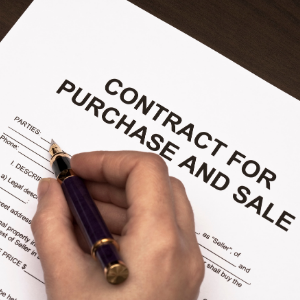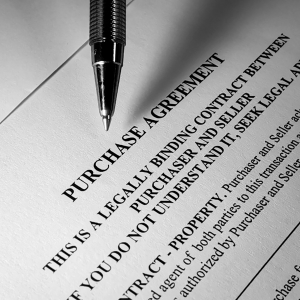
Navigating the sale of land in Louisiana demands careful attention to legal and procedural details. Whether you’re an individual landowner or a real estate professional, understanding the essential documents involved is crucial for a smooth transaction. This guide offers a comprehensive overview of the paperwork necessary to successfully sell land in Louisiana, including property deeds and disclosure statements. Our goal is to equip you with the knowledge needed to ensure compliance and facilitate a seamless sale, enabling you to achieve your land transaction goals with confidence and ease. Dive in to streamline your Louisiana land sale process effectively.
Key Highlights
- A comprehensive understanding of Louisiana land dynamics aids in setting competitive prices and attracting suitable buyers.
- Essential documents for land sales include the property deed, clear title, land survey, and mandatory disclosure forms.
- Engaging a real estate attorney ensures compliance with state laws and safeguards against disputes that may arise during transactions.
- A well-structured sales contract outlines critical terms, timelines, and contingencies, thereby protecting the interests of both the buyer and the seller.
- Finalizing sales involves meticulous preparation of closing paperwork and settlement statements to ensure a smooth ownership transition.
Introduction to Selling Land in Louisiana
Selling land in Louisiana involves various dynamics specific to the state’s real estate market. Understanding the nuances of a land sale, including the necessary legal considerations, is crucial for a smooth transaction. Whether you are an owner selling basic property or vacant land, comprehending Louisiana’s specific requirements can make a significant difference. With proper preparation and an understanding of contracts, working with a realtor or choosing to handle the sale as a “for sale by owner” (FSBO) can significantly impact your success. As you navigate these aspects, you’ll be well-prepared to engage effectively with potential buyers.
Key Legal Considerations for Land Sellers in Louisiana

When selling land in Louisiana, understanding the key legal requirements is essential to ensuring a smooth, compliant, and dispute-free transaction. Louisiana’s real estate laws can be intricate, so sellers must pay close attention to the documentation, disclosures, and verification processes that form the legal foundation of a land sale.
The sales contract serves as the cornerstone of any real estate deal. It formalizes the agreement between the buyer and the seller, outlining critical details such as the purchase price, contingencies, payment terms, and closing timelines. To ensure accuracy and legal compliance, it’s strongly recommended that the contract be drafted or reviewed by a qualified real estate attorney. This professional oversight minimizes the risk of disputes and guarantees that all terms align with Louisiana’s real estate laws.
Before listing land for sale, sellers should verify that their title is free from liens, claims, or ownership disputes. A title search, typically conducted through a reputable title company, ensures that the property can be legally transferred without complications. Buyers in Louisiana are especially cautious about title integrity, so having a verified and marketable title boosts buyer confidence and accelerates the closing process.
Louisiana law requires sellers to provide a property disclosure form, detailing any known defects, environmental issues, or zoning restrictions that might affect the property’s value or use. Complete transparency not only fulfills legal obligations but also demonstrates good faith, protecting sellers from potential legal action after the sale. Disclosures can include details about easements, flood zones, soil stability, or other relevant land characteristics.
Navigating Louisiana’s real estate regulations can be complex, especially for first-time land sellers. Collaborating with a real estate attorney, title company, or experienced land agent ensures that all paperwork, filings, and legal steps are handled correctly. These professionals can guide sellers through the finer points of contract law, title clearance, and disclosure compliance, helping prevent costly errors or delays.
By proactively addressing these legal considerations, land sellers in Louisiana can confidently move through each stage of the transaction. Proper legal preparation not only protects your rights as a seller but also reassures buyers that the sale is transparent, lawful, and secure — leading to a smoother, faster, and more successful closing.
Feeling overwhelmed? You don’t have to navigate it alone. Fast Land Offers works with Louisiana landowners every day, helping them sell land fast and legally without the stress of traditional listings. Our team ensures that every transaction meets state requirements while maintaining a quick, transparent, and fair process.
Essential Documents Needed for Louisiana Land Transactions
Engaging in land transactions in Louisiana requires adhering to specific legalities, primarily revolving around obtaining the necessary documents for a successful sale. Whether you are an individual navigating the complexities of a real estate transaction or an experienced investor, having a well-prepared checklist is fundamental. This section will outline the necessary paperwork, detailing both the critical forms that must be included and the importance of a robust sales contract in streamlining the process and minimizing disruptions.
Checklist of Documents Needed for a Smooth Land Sale in Louisiana
In Louisiana, selling a land property involves more than just finding a buyer. One must prepare, pack, and organize a set of legal documents. Prepared documents aid in closing, and more importantly, help satisfy legal requirements. This acts as a safeguard for both the buyer and seller against concerns related to the state’s laws.
The first document in the set is a deed that shows a clear title to the property, affirming the right of ownership and transfer. This record must show that there are no liens, claims, or any other encumbrances that can complicate the ownership transfer. This deed is central, and the service of a trusted title company to conduct a title search and record verification is essential and inescapable for any sale.
In selling land in Louisiana, a recent land survey is also vital. This legal document delineates the boundaries, easements, and land dimensions and claims the land, and is essential for preventing ownership disputes in the future. An accurate survey is vital, as it assures the buyer that the land is indeed as described in the contract.
Sellers in Louisiana are required to complete a property disclosure form that lists any known defects, structural issues, or environmental concerns associated with the property. This form of disclosure greatly helps the seller limit their liability while reassuring prospective buyers that they are purchasing a property that is reasonably free of problems. Following the law is not the only reason to be honest about the property—Trust is a critical factor in any successful negotiation.
Title and ownership history must be examined, and any lingering ownership disputes should be resolved. This significantly enhances the property’s value and adds to its appeal to buyers.
Sellers are required to prepare and submit relevant tax documents before the closing date. This includes evidence of paid property taxes, any unpaid taxes, and other tax particulars. This information, although not always relevant, is crucial at closing, and meeting closing documents is a step closer to completing the transaction on time.
Trust is crucial in any business transaction. This is particularly so in the selling of land, where trust may be rare. Aside from the documents, buyers are less likely to be the targets of legal disputes. Meeting the transaction on time also reinforces the impression that the seller is a professional who is transparent in their dealings.
The Importance of a Well-Structured Sales Contract
A well-structured sales contract is the backbone of any land sale in Louisiana, serving as the binding agreement that protects both the buyer and the seller. More than just a formality, it’s a crucial legal document that clearly defines all negotiated terms — from the purchase price and payment schedule to contingencies and closing conditions. Every detail matters, as even minor ambiguities can lead to misunderstandings or legal disputes down the line.
Due to Louisiana’s unique real estate laws, consulting a qualified real estate attorney or an experienced land sales professional is strongly recommended. They can help draft or review the contract to ensure it complies with state regulations and accurately reflects the intentions of both parties.
- Purchase and Payment Details – The contract should clearly specify the final sale price, payment terms, and any earnest money deposits.
- Contingencies – Include clauses for financing, property inspections, and title verification to protect both sides in case unexpected issues arise.
- Closing Timelines – Defining clear deadlines helps keep the transaction on schedule and minimizes delays.
- Property Inclusions – Outlining exactly what is part of the sale (fixtures, improvements, or specific parcels) prevents future misunderstandings.
- Exit or Default Clauses – These clauses outline what happens if either party fails to fulfill their obligations or decides to withdraw, thereby protecting all parties involved.
Given Louisiana’s complex legal framework and distinctive property laws, precision is not optional — it’s essential. A clearly written sales contract ensures mutual understanding, promotes trust, and reduces the likelihood of disputes. For sellers, it provides legal protection and peace of mind; for buyers, it offers confidence that their investment is secure.
By dedicating time to crafting a comprehensive and transparent sales contract, both parties lay the groundwork for a smooth, efficient, and legally sound transaction. This attention to detail not only helps avoid costly delays but also reinforces professionalism and reliability in every Louisiana land sale.
Negotiating the Purchase Agreement
Engaging in negotiations for a purchase agreement in Louisiana’s real estate market requires a nuanced approach, considering the interests of both the buyer and the seller. Starting with a comprehensive understanding of the components within a purchase agreement, parties involved can better navigate the complexities of amending terms and addressing contingencies. Such precision ensures smoother transactions and minimizes disputes, promoting beneficial outcomes for all stakeholders involved in land sales.
Components of a Comprehensive Purchase Agreement

A comprehensive purchase agreement is the foundation of any successful land sale in Louisiana, outlining the rights, responsibilities, and expectations of both the buyer and the seller. This legally binding document defines all critical elements of the transaction, ensuring transparency and minimizing the risk of misunderstandings or disputes.
The core components of a Louisiana purchase agreement typically include:
- Purchase price and payment terms – These outline the total amount agreed upon and specify the method and timing of payments.
- Detailed Property Description – The agreement must clearly identify the land, including its address, acreage, and boundaries. For rural or subdivided properties, attaching a current property survey is especially important.
- Allocation of Costs – The contract should clearly specify who is responsible for paying closing costs, title searches, and recording fees to avoid last-minute confusion.
In Louisiana, precision matters — real estate laws require clear and complete documentation to ensure enforceability and protect both parties’ interests.
Louisiana law obliges sellers of a property to complete a property disclosure certificate indicating any remaining defects, easements, or restrictions that may limit or affect the value of the land. Such disclosures enhance transparency, mitigate the risk of legal misunderstandings, and protect both sides. Disclosure of these issues at the beginning of the transaction fosters buyer assurance and facilitates a more effortless closing of the transaction.
Every agreement of purchase and sale should include a number of important dates, including, but not limited to, the date of the inspection, the date by which financing must be secured, and the date by which closing must be completed. Stipulating such timeframes helps ensure both the buyer and seller efficiently complete the transaction. Adding contingencies (for example, financing, title, or closing certain documents, and other unexpected issues) provides the required latitude if any of the problems arise.
As every land transaction is distinct, it is always best for both the buyer and seller to consult a Louisiana real estate attorney or a land broker, as these professionals are most familiar with real estate property transactions in Louisiana. Such individuals will ensure that every provision in the contract, including disclosures and the payment schedule, complies with the law, and their discretion accurately reflects the true intentions of both parties.
Louisiana landowners can avoid costly mistakes, protect their interests, and establish a solid foundation for a smooth and successful sale with a clear and comprehensive purchase agreement. You can be sure that you are closing the deal with certainty by not skipping the steps of analyzing and drafting the document, whether you are selling a small lot or a large acreage.
For sellers who prefer a straightforward approach, Fast Land Offers eliminates the need for lengthy negotiations or intermediaries. You’ll receive a fair cash offer upfront, and if you accept, we’ll take care of the rest — no hidden fees or closing delays. Whether you’re selling land in Arkansas or Mississippi, they make the process efficient and straightforward.
Navigating Contingencies and Amendments
When selling land in Louisiana, it’s essential to understand how contingencies and amendments protect both buyers and sellers during the negotiation process. These provisions add flexibility to a purchase agreement, enabling both parties to manage unexpected changes that may arise before closing.
Contingencies are conditions that must be met before a sale is finalized. In Louisiana land transactions, the most common contingencies include:
- Financing contingency – allows buyers time to secure a mortgage or funding. If financing falls through, the seller isn’t obligated to proceed with the sale.
- Inspection contingency – allows buyers to inspect the land and verify that its condition meets expectations. If issues arise, the parties can renegotiate the price or require repairs to be made before closing.
- Title contingency – ensures that the land title is clear of liens, disputes, or ownership complications. A clean title is essential for a legally sound transaction.
These contingencies provide essential safeguards, ensuring that both parties can proceed with confidence while maintaining fairness and transparency.
Amendments take effect when conditions shift after a purchase agreement is signed. Some examples are new findings in public records, alterations in a boundary through a survey, or changes in zoning regulations that dictate how the land may be utilized.
Defining the amendment process in the underlying agreement stems from unwanted ambiguity. The ability to alter boundary conditions, such as the sale price, closing date, or maintenance obligations, without touching the overarching sale, is beneficial.
Given the intricacies of Louisiana real estate law, amendments should be made in conjunction with a real estate attorney or licensed agent. Such attorneys will safeguard against changes that may result in litigation or an evolving hostility due to a fundamental disconnect.
Flexibility in the approach to legislative contingencies, amendments, or complex alterations allows Louisiana area land sellers to keep primary control over the transaction. They will also be able to build rapport with the buyers. Whether dealing with land and contract term revisions or inspection findings, competent attorneys facilitate a seamless and lawful transaction that is beneficial to both parties.
Finalizing the Sale: Closing Paperwork and Beyond
Completing a land sale in Louisiana involves more than just agreeing on a price; it also requires careful consideration of various factors. The crucial final step is handling the closing paperwork, which consolidates all negotiations and legalities into binding documentation. In addition to contractual agreements, ensuring a smooth transition of property ownership is paramount, requiring a detailed understanding of the processes involved in the closing. This stage not only reviews previous agreements but also ensures that both seller and buyer fulfill all stipulated obligations. Successfully managing these elements guarantees that the property transfer is legally sound and free from unforeseen complications.
Steps to Complete the Closing Paperwork in Louisiana
Finalizing a land sale in Louisiana hinges on one critical step — completing the closing paperwork. This stage consolidates all negotiations, agreements, and legal details into formal documents that legally transfer ownership from the seller to the buyer. Because this process involves multiple legal and financial elements, accuracy and attention to detail are essential to avoid delays or future disputes.
The seller should begin by organizing and reviewing all essential closing documents, which typically include:
- The executed sales contract
- A clear title certificate
- A recent property survey
Each of the aforementioned documents is vital for confirming ownership and determining the boundaries of a parcel of land. A title is considered free of liens or encumbrances once it is closed. For this reason, it is advisable to obtain a title search from a reputable title company in Louisiana. Many complications associated with the transaction can be avoided by resolving title issues early in the process.
Parties to a transaction should also review public records to ensure that the documented ownership and land use records are accurate. This step is designed to enhance the buyer’s confidence in the transaction and promote transparency throughout the process. Most buyers also seek title insurance to protect themselves from investment ownership issues that may arise years after the purchase or claims that are not immediately apparent. This has the effect of reassuring the buyer that a thorough investigation has been carried out on the land’s title.
Under Louisiana law, the seller is required to complete a property disclosure form that details the condition of the land from both qualitative and quantitative perspectives. Such land issues are likely to include the presence of dangerous materials, zoning issues, or a lack of access to vital infrastructure. Complete honesty, especially in state reports, helps to avert contradictions that arise after a purchase is made.
Given the multitude of transactional component nuances, attending to the legal aspects of any property sale warrants the assistance of real estate attorneys in Louisiana or real estate agents in the local area. These attorneys/agents can handle the corrective application of the appropriate legal instruments, down to the final partial disposition of the properties, and also confirm the adjustments of the balance closures.
The final stage of the above action involves the closing meeting, which ultimately becomes the last stage in the transaction. Both in the sale and in the disposition, the value of the property under sale is prepaid, which shifts the ownership of the property under the scope of the sale. The deed transfers the property to the buyers and is the final step completed at the meeting, which is subsequently recorded with the Louisiana public registrars. These registrars serve to discharge the owners and any residue dues of the property.
With the assistance of qualified legal professionals, sellers can prepare each legal document to safeguard the Louisiana territory’s remaining land from complex legal frameworks. Preconditions aim to encourage buyers in the land sale and build loyalty. Closing the Louisiana transaction should enable the real estate attorneys and buyers to acquire legal rights over the disputed territory on independent premises.
Ensuring a Smooth Transition of Property Ownership in Louisiana

Closing documents in Louisiana may seem straightforward as a means of transferring land, but in reality, they require a range of supporting internal systems to prioritize the performance of roles needed by all parties and avoid unnecessary setbacks during the closing process.
Clarifying roles in the sale and the closing process provides sellers with settlement statements. Such stipulations document the entire transaction and all accountants’ obligations, therefore, creating mutually beneficial commitments between the parties. Sellers are given credits, debits, taxes, and agent commissions, which are mandated to the seller’s account.
Finally, the walkthrough provides the sellers, along with the buyer, a chance to finalise the transaction before any new documents are created. If the property or the land does not match the agreement, improvement suggestions can be made and rectified before the transfer of ownership. Finally, it is the responsibility of sellers to ensure a smooth transition of service to the new owners, which means that all utilities, easements, and homeowner association obligations must be assigned to avoid service disruptions.
In transactions involving financing, communication with the purchaser’s mortgage lender is crucial. Communicating effectively helps synchronize the loan approval with the loan closing, which in turn helps avoid last-minute issues. A Louisiana real estate attorney or title company facilitates the process to ensure that the legal documents, title insurance, and other documents comply with state requirements, which helps avoid issues after closing.
After the documents are signed and the funds are available for withdrawal, the deed is registered with the competent parish or county office. This now officially offloads the real estate to the purchaser and completes the transfer of the property, confirming them as the new owner.
By following the best post-closing practices outlined above, Louisiana sellers can ensure an uninterrupted, legally compliant land sale. A complete understanding, accurate records, and the required professional help all ensure that selling land in Louisiana can be done simply, with all parties’ interests protected and the exchange of ownership straightforward.
Fast Land Offers makes selling land in Louisiana simple, fast, and stress-free — handling every detail from paperwork to closing so you can confidently turn your property into cash without the usual delays or complications. Contact us at (843) 606-1001 today to learn more about how we can help!
Frequently Asked Questions
What are the essential documents required to sell land in Louisiana?
To sell land in Louisiana, essential documents include:
- Property Deed
- Clear Title
- Land Survey
- Mandatory Disclosure Forms
Why is engaging a real estate attorney necessary in a Louisiana land sale?
Engaging a real estate attorney ensures compliance with state laws, helps safeguard against disputes during transactions, and guides the seller through the process.
What factors influence land pricing and buyer attraction in Louisiana?
Factors that influence land pricing and attract buyers in Louisiana include the state’s diverse geography, economic factors, and the scenic landscapes that appeal to residential and commercial developers.
What are the advantages and disadvantages of selling land via FSBO in Louisiana?
Selling land via “For Sale by Owner” (FSBO) allows vendors to retain complete control over the sale process and avoid paying agent fees. However, it requires a thorough understanding of marketing and legal paperwork, which can be more demanding than using a real estate agent.
How does the sales contract protect both buyer and seller in a Louisiana land transaction?
The sales contract outlines important terms, timelines, and contingencies that protect the interests of both the buyer and the seller. It ensures that all parties have an explicit, mutual understanding of the transaction, thereby reducing the risk of potential disputes.
Helpful Louisiana Blog Articles
- How to Sell Land Without an Agent in Louisiana
- How to Find Out Zoning of My Land in Louisiana
- How to Sell Land with a Lien in Louisiana
- Can You Sell Land if You Owe Taxes in Louisiana
- Paperwork for Selling Land by Owner in Louisiana
- Can You Sell Land if You’re in Foreclosure in Louisiana
- How to Sell Inherited Land in Louisiana
- How to Sell Land with Mineral Rights in Louisiana
- Can You Subdivide Land in Louisiana?
- Can You Sell Land with No Legal Access in Louisiana?
- What Documents Are Required to Sell Land in Louisiana?
- Real Estate Commission on Land Sales in Louisiana
